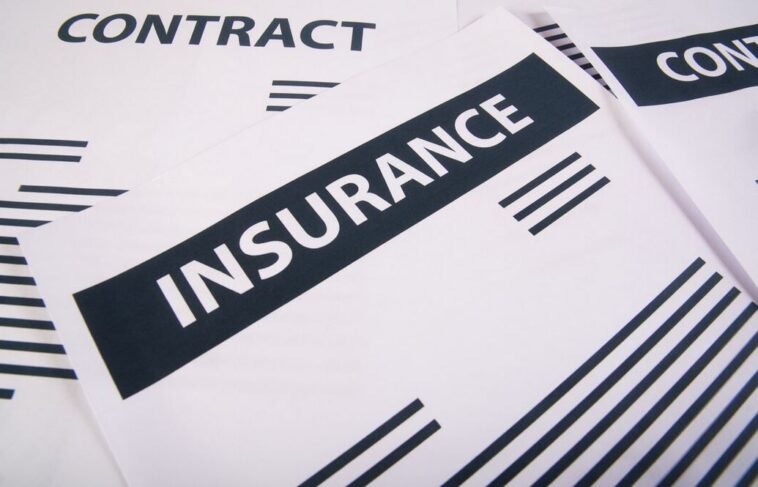In today’s fast-paced and unpredictable world, it is importance to have a solid financial plan. One crucial component of this plan is insurance, which provides a safety net against unexpected events that could otherwise derail your financial stability. Whether you’re an individual looking to protect your assets or a business owner seeking to safeguard your company’s future, understanding the ins and outs of insurance is essential. In this comprehensive guide, we’ll explore the fundamentals of insurance, its various types, and how it can benefit you in the long run.
Understanding Insurance
At its core, insurance is a contract between you (the policyholder) and an insurance company (the insurer). In this agreement, you pay a fee, known as a premium, in exchange for the insurer’s promise to compensate you for specific losses or damages that may occur in the future. This arrangement helps to manage risk by providing a safety net against unexpected financial burdens.
How Insurance Works
Insurance operates on the principle of risk pooling. When many individuals pay premiums, the insurance company collects these funds and uses them to cover the losses of those who experience covered events. For example, if a car accident occurs, the insured individual can file a claim, and the insurer will pay for the damages, up to the policy limits.
Key Components of Insurance
- Premium: The amount you pay for your insurance coverage, usually on a monthly or annual basis.
- Deductible: The amount you must pay out of pocket before your insurance kicks in. For instance, if you have a $500 deductible and incur $2,000 in damages, you pay the first $500, and the insurer covers the remaining $1,500.
- Coverage Limits: The maximum amount an insurer will pay for a covered loss. It’s essential to choose limits that adequately protect your assets.
Types of Insurance
Insurance comes in various forms to cater to different needs. Here are some of the most common types:
Life Insurance
Life insurance provides financial support to your beneficiaries in the event of your death, helping them cover expenses like funeral costs and outstanding debts. There are two main types of life insurance:
- Term Life Insurance: This type of policy provides coverage for a specific period, known as the “term.” If you pass away during the term, your beneficiaries receive the death benefit.
- Whole Life Insurance: Whole life insurance provides lifelong coverage and includes a savings component, known as the “cash value.” As you pay premiums, a portion of the money is invested, and you can borrow against the cash value if needed.
Health Insurance
Health insurance covers medical expenses, including doctor visits, hospital stays, and prescription medications, ensuring you receive necessary healthcare without incurring overwhelming costs. There are several types of health insurance plans:
- Employer-Sponsored Plans: Many employers offer health insurance as a benefit to their employees.
- Individual Plans: If your employer doesn’t offer coverage or you’re self-employed, you can purchase an individual health insurance plan through the marketplace or directly from an insurance company.
- Government-Sponsored Plans: Programs like Medicaid and Medicare provide health coverage for specific groups, such as low-income individuals and seniors.
Auto Insurance
Auto insurance protects you from financial loss due to accidents involving your vehicle. It can cover damages to your car, liability for injuries to others, and theft. Most states require drivers to have a minimum level of auto insurance coverage.
Homeowners Insurance
Homeowners insurance safeguards your home and personal belongings against risks such as fire, theft, and natural disasters. It also provides liability coverage if someone is injured on your property. This type of insurance is typically required by mortgage lenders.
Business Insurance
Business insurance offers protection for businesses against various risks, including property damage, liability claims, and employee-related risks. The specific coverage needed depends on the nature of your business and its size.
Benefits of Insurance
The advantages of having insurance are numerous:
- Financial Security: Insurance provides peace of mind by ensuring that you have financial support in times of crisis, allowing you to focus on recovery rather than financial stress.
- Risk Management: By transferring the financial risk to the insurer, you can better manage your finances and plan for the future without the fear of unexpected expenses derailing your plans.
- Legal Requirement: Certain types of insurance, such as auto insurance, are legally mandated, ensuring that individuals have a minimum level of protection.
- Protection for Loved Ones: Life insurance can provide a safety net for your family, ensuring they are financially secure in your absence.
- Access to Resources: Many insurance policies offer additional resources, such as legal assistance or health services, making it easier to navigate challenging situations.
Choosing the Right Insurance
When selecting insurance coverage, it’s essential to consider your specific needs and budget. Here are some factors to keep in mind:
- Assess Your Risks: Evaluate the potential risks you face and the financial impact they could have on your life or business.
- Determine Coverage Needs: Based on your risks, decide on the types of insurance you need and the appropriate coverage limits.
- Compare Policies: Shop around and compare policies from different insurers to find the best coverage at the most affordable price.
- Review Regularly: As your life circumstances change, review your insurance coverage to ensure it still meets your needs.
Insurance is a crucial component of a comprehensive financial plan, providing protection against unexpected events and ensuring your financial stability. By understanding the different types of insurance and their benefits, you can make informed decisions about the coverage that best suits your needs. Remember, the cost of insurance is far less than the potential financial burden of being uninsured in the event of a crisis. Take the time to review your insurance needs and ensure you have the protection you need to safeguard your future.




GIPHY App Key not set. Please check settings